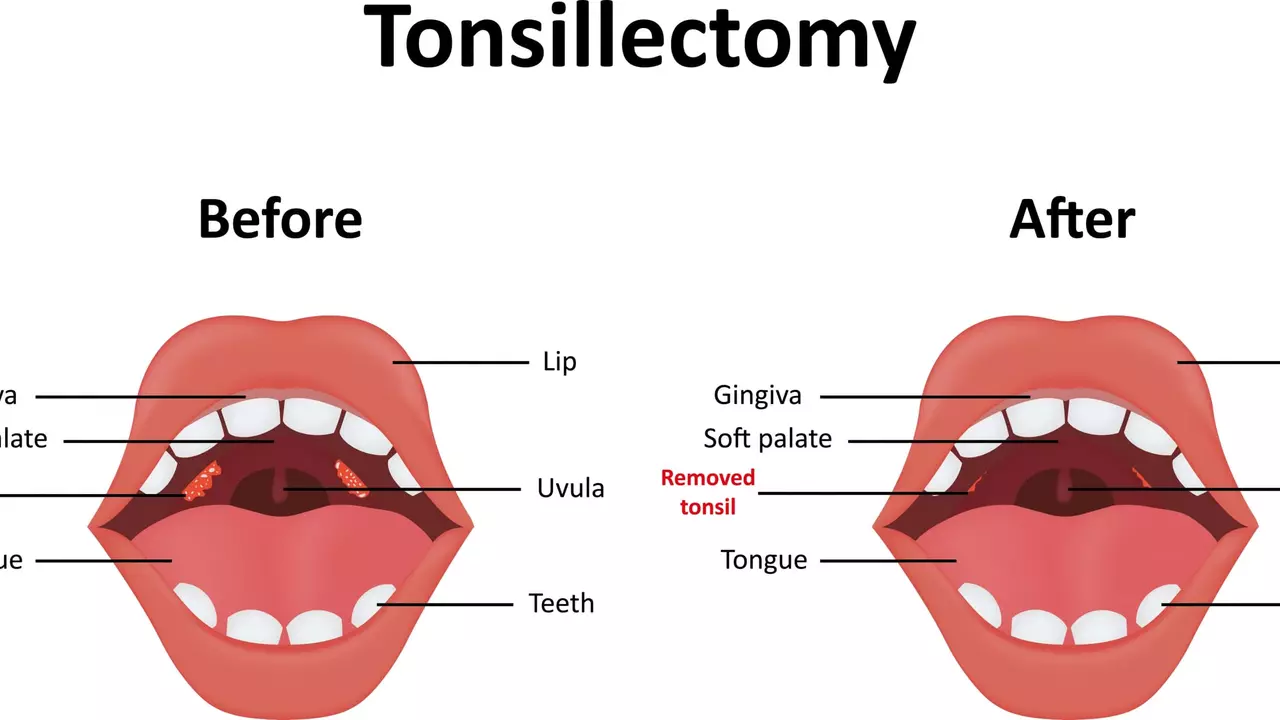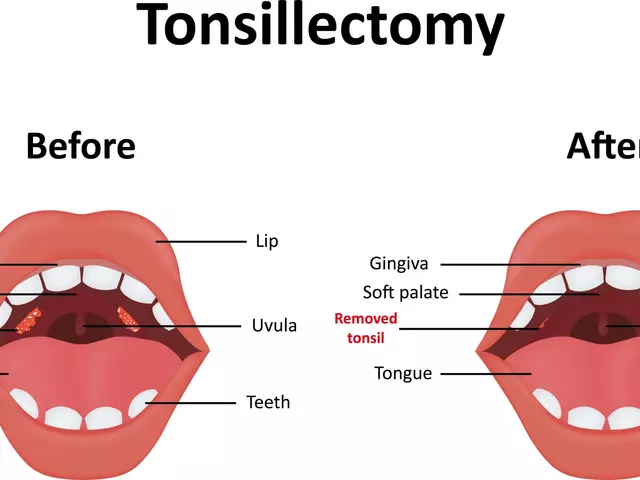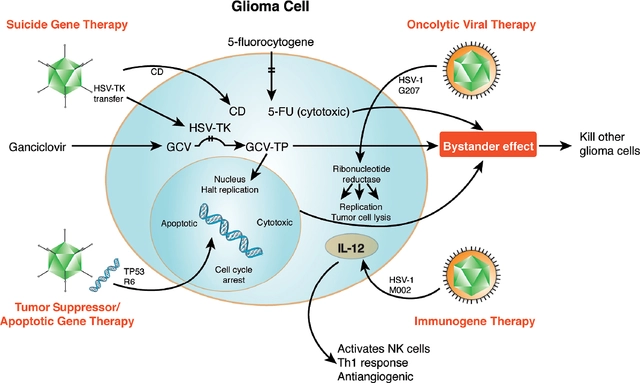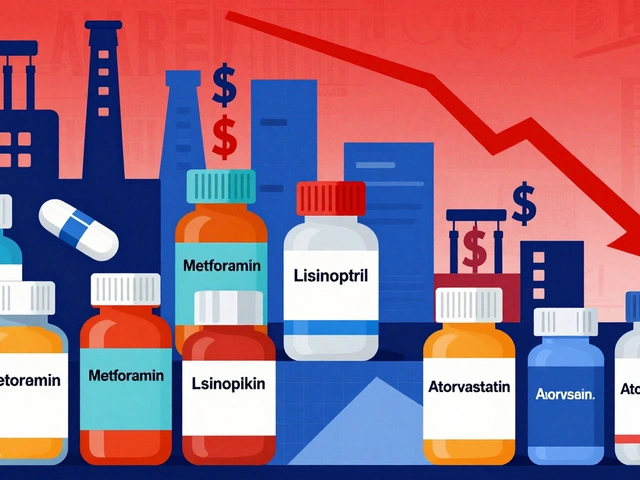Understanding Tonsillitis in Babies
One of the main concerns of being a parent is keeping our little ones healthy. We worry about any sign of discomfort or illness and when it comes to tonsillitis, it is no different. Tonsillitis in babies can be quite unsettling, especially since our little ones cannot communicate what they’re feeling. Tonsillitis typically refers to inflammation of the tonsils, which are the two lymph nodes located on either side of the back of the throat. It's a common childhood illness and can occur at any age, but is less common in babies and toddlers.
Identifying the Symptoms of Tonsillitis in Babies
Knowing the signs and symptoms of tonsillitis in babies can help you identify the issue early on. Some common symptoms include a sore throat, difficulty swallowing, refusal to eat, unusual fussiness, a fever, and swollen glands in the neck. Babies may also develop a rash or show signs of a cold or flu, such as a runny nose or cough. In rare cases, they may also experience stomach pain or vomiting. If your baby is showing any of these signs, it's important to contact your pediatrician immediately.
The Causes of Tonsillitis in Babies
Understanding the causes of tonsillitis is paramount in preventing and treating this condition. Tonsillitis is most often caused by a viral infection, such as the common cold or the flu. However, it can also be caused by a bacterial infection, most commonly group A streptococcus bacteria. Exposure to these viruses or bacteria can happen in a variety of ways, from touching a contaminated surface to inhaling the same air as a sick person. This is why it’s crucial to maintain good hygiene practices, particularly in public places.
Diagnosing Tonsillitis in Babies
Diagnosis of tonsillitis in babies involves a physical examination by a pediatrician. The doctor will look at your baby's throat, listen to their breathing, and may also take a throat swab to identify the cause of the infection. In some cases, blood tests may be necessary. If your baby has recurrent tonsillitis, your doctor may also suggest additional tests to rule out other medical conditions. Remember, early diagnosis can help ensure the right treatment and speed up recovery.
Treatment Options for Tonsillitis in Babies
Treatment for tonsillitis in babies largely depends on the cause of the infection. If it's a viral infection, the illness will likely resolve on its own with time. However, your doctor may recommend measures to make your baby more comfortable, like using a cool-mist humidifier or giving them plenty of liquids. If the cause is a bacterial infection, your doctor will likely prescribe antibiotics. In severe cases of recurrent tonsillitis, a tonsillectomy (surgical removal of the tonsils) may be suggested, but this is extremely rare in babies.
Preventive Measures for Tonsillitis in Babies
While it may not be possible to prevent all cases of tonsillitis, certain measures can help reduce your baby's risk. Maintaining good hygiene practices such as washing hands regularly, avoiding close contact with sick people, and cleaning toys and surfaces routinely can help. Ensuring your baby is up-to-date with vaccinations is also crucial. Remember, while tonsillitis can be worrying, most babies recover with appropriate care and treatment. Always consult with your pediatrician if you have concerns about your baby's health.







Stephen Nelson July 1, 2023
Ah, the modern parent’s gospel-if you can’t name every little lymph node, you must be neglecting your child. The article drapes itself in ivory‑tower authority while ignoring the chaotic reality of diaper changes and midnight fevers. One could argue that “tonsillitis” is just another excuse for us to feel superior in our endless Googling. Yet, somewhere between the clinical jargon and the soothing lullabies lies the simple truth: babies do not need a dissertation, they need comfort. So, dear reader, keep the medicalese at bay and focus on the hum of a humidifier and a steady hand.
Fredric Chia July 10, 2023
Upon review of the presented material, it is evident that the author has omitted a thorough discussion of differential diagnosis, which constitutes a methodological oversight. Moreover, the recommendation for antibiotics lacks citation of current stewardship guidelines, thereby compromising clinical prudence. Consequently, the exposition warrants amendment to reflect evidence‑based practice.
Hope Reader July 19, 2023
Thanks for the thorough rundown! 😊 It’s comforting to know that a cool‑mist humidifier can actually make a difference, especially when our little ones are turning the feeding table into a battlefield. I’ll definitely keep the toys sanitized and the hands washed – because apparently germs love a good playdate as much as we do. Keep the tips coming, they’re a lifesaver! 😄
Marry coral July 28, 2023
Look, babies aren’t little adults, they can’t tell you they have a sore throat, so you gotta watch for the signs and act fast. If you ignore the fever and the fussiness, you’re just asking for trouble later.
Emer Kirk August 6, 2023
i cant even i mean its so hard to keep track of all the symptoms and the doctors keep talking like they know everything and i just want my baby to be fine and stop the crying i feel overwhelmed but i also know i have to stay calm and keep an eye on that little throat
Roberta Saettone August 14, 2023
From a clinical standpoint, the recommendation to use a cool‑mist humidifier aligns with studies showing improved mucosal hydration, yet the article could have cited those sources for added credibility. Additionally, antibiotics should be reserved for confirmed bacterial etiology, a nuance that is often lost on frantic parents. Nonetheless, the advice to maintain hand hygiene and keep vaccinations up‑to‑date is solid, even if it feels like stating the obvious. In short, the piece offers practical steps, but a dash of evidence would elevate it from good to great.
Sue Berrymore August 23, 2023
Let’s face it, the days when a simple sip of water could cure everything are over, but that doesn’t mean we have to surrender to panic. Embrace the small victories-like getting that extra ounce of fluid in the baby’s mouth or seeing a tiny smile between the fevers. Remember, your calm energy is contagious; the little one feels it too. Keep the humidifier humming, the hands clean, and your spirit unshakable.
Jeffrey Lee September 1, 2023
Honestly i think most of these so called “expert” guides are just rehashed pamphlets from the 90s i mean sure, wash yo hands and keep the toys clean but come on we all know germs are everywhere and if you’re not a super‑mom you’re doomed i don’t even know why i’m wasting my time reading this
Ian Parkin September 10, 2023
It is commendable that the article underscores both preventive hygiene measures and the importance of timely medical consultation, thereby fostering a balanced approach to infant health. By integrating such recommendations into routine care, caregivers can mitigate the risk of severe tonsillar inflammation while preserving parental confidence. I look forward to future contributions that may further elucidate the nuances of viral versus bacterial etiologies in this vulnerable population.
Julia Odom September 19, 2023
Your emphasis on maintaining up‑to‑date vaccinations is particularly salient, given the role of immunization in reducing secondary respiratory infections that may precipitate tonsillitis. Moreover, the suggestion to utilize a cool‑mist humidifier aligns with best practice for symptomatic relief. Thank you for presenting this information with both clarity and clinical relevance.
Danielle Knox September 27, 2023
Oh wow, another “must‑read” piece about baby throat stuff-because we all needed a reminder that babies can’t tell us when they feel like a dragon on fire. Sure, wash those hands, but let’s not pretend this isn’t a recycled paragraph from the 2000s Internet health forums.
Mark Evans October 6, 2023
I hear you; watching a tiny human struggle with a sore throat can be heartbreaking, especially when they can’t articulate the pain. Your reminder to stay hydrated and keep the environment moist is a practical lifeline for many parents navigating this stress. Thank you for offering both compassion and clear guidance.
Megan C. October 15, 2023
It is frankly irresponsible to downplay the seriousness of tonsillitis in infants, as neglecting proper care can lead to dire complications. Parents have a moral duty to adhere strictly to medical advice rather than relying on vague home remedies. Anything less borders on negligence, and society must hold caregivers accountable for the well‑being of the most vulnerable.
Greg McKinney October 24, 2023
Honestly, this is just another hype piece.
Dawna Rand November 2, 2023
Hey there! 🌟 Remember, every little step you take-whether it’s a gentle wipe of the nose or a soothing lullaby-adds up to a big win for your baby’s health. Keep that positive vibe flowing, and don’t forget to celebrate the tiny milestones along the way! 🎉💪
Effie Chen November 10, 2023
While the article covers the basics, I’m curious about the long‑term outcomes for infants who undergo multiple tonsillitis episodes-does early intervention alter developmental trajectories? 🤔 Also, could there be a link between early exposure to certain microbes and later immune resilience? 🌱 Your thoughts would be appreciated.
rohit kulkarni November 19, 2023
The phenomenon of tonsillitis in infants, though ostensibly a simple inflammatory response, invites us to contemplate the intricate interplay between nascent immunity and environmental exposure. When a newborn’s delicate mucosal barriers confront viral or bacterial agents, the body orchestrates a cascade of cytokines, a symphony of signals that both defend and, paradoxically, provoke discomfort. This duality reflects the broader philosophical tension between protection and pain, a theme echoed throughout the natural world. Consider, for a moment, the humble tonsil as a sentinel, perched at the gateway of the throat, ever vigilant, yet vulnerable to the very invaders it monitors. Its swelling, therefore, is not merely a symptom, but a testament to the organism’s earnest attempt to preserve homeostasis. Parents, in their role as caretakers, navigate the space between observation and intervention, a balance that demands both empathy and scientific rigor. The recommendation to employ a cool‑mist humidifier, while seemingly trivial, underscores the importance of creating an environment conducive to mucosal healing. Similarly, the insistence on hand hygiene transcends superstition; it is an acknowledgment of the microscopic networks that bind community health. Antibiotic stewardship further exemplifies the moral responsibility we bear, lest we erode the efficacy of life‑saving drugs through indiscriminate use. Yet, the specter of recurrent tonsillitis challenges us to ask whether surgical removal, a drastic measure, might be justified in the pursuit of long‑term wellbeing. Such a decision, however, must be weighed against the potential consequences of excising a component of the immune system at a formative stage. In the broader tapestry of pediatric care, each choice resonates beyond the immediate clinical outcome, shaping the child’s future relationship with health. Thus, the article’s emphasis on vaccination serves as a reminder that prevention, more than cure, is the cornerstone of sustainable health. In reflecting upon these considerations, we are invited to adopt a holistic perspective, one that honors both the biological mechanisms and the lived experience of the infant. Ultimately, the convergence of science, compassion, and philosophical inquiry illuminates the path forward, guiding caregivers toward decisions that are as informed as they are humane.